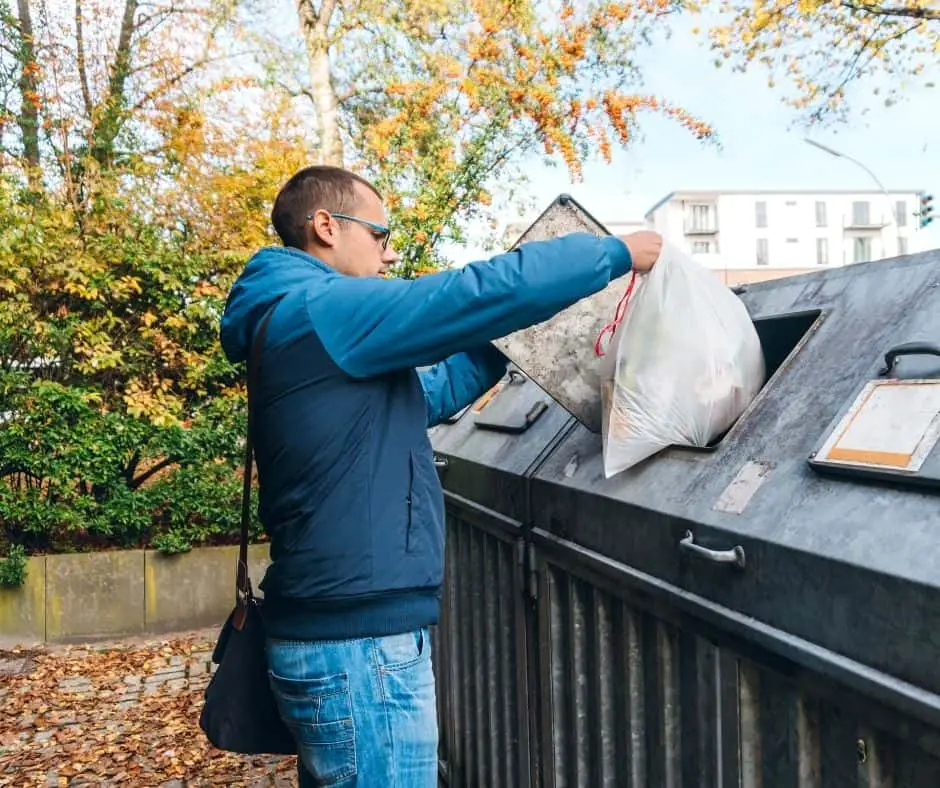The environmental impact of our current waste disposal system is undeniable. From the amount of trash we create, to the way it impacts health and land use, today’s systems are having a huge negative effect on society. There is no better time than now for individuals to take up recycling programs in their everyday lives through small changes like adding glass bottles or cans into compost bins at work or home.
The “how to reduce waste at home” is a common question. The answer is simple; take out the trash every day and make sure to recycle or compost everything else.
Table of Contents
How do you go zero waste step by step?
A: This is a difficult question. There are many different ways to go zero waste, and it would be impossible to list them all here. However, you can check out this article for some tips on how to start going zero waste.
How can we get zero waste at home?
A: The best way to reduce waste is to reuse and recycle. Take your old clothes that you dont wear anymore and donate them, or take them to a thrift store. If you want to get rid of something, try selling it on eBay or Craigslist first.
Is going zero waste really possible?
A: It is possible to go zero waste, but it will take a lot of work. The first step is to reduce your consumption and make sure that you are not contributing to the problem. Then you can start recycling and composting as much as possible.
How can I go zero waste for a day?
A: I am not a waste expert, but here are some resources that might help you.
https://www.theguardian.com/environment/2018/jan/05/how-to-go-zero-waste-for-a-day
https://www.theguardian.com/lifeandstyle/2014/jun/24/how-to-go-zero-waste
Why is zero waste so hard?
A: Its hard because its a new idea. We have been using the same ways of doing things for so long that we dont realize how wasteful they are. If you want to make zero waste easier, start by just recycling and composting more.
How can waste be reused?
A: There are many ways to reuse waste. One way is to compost, which can be done by mixing the waste with organic material like leaves and grass, then burying it in a hole or pile. Another option is to use it as fertilizer for plants.
What is considered zero waste?
A: Zero waste is a philosophy that seeks to eliminate all forms of waste, including the use of resources and materials. Its also a movement that promotes sustainable design, production, and consumption.
What can you do with plastic waste at home?
A: Plastic waste is a type of material that can be recycled into new products. There are many different ways to do this, but the most common way is to melt down the plastic and use it as raw material for new items.
What are the 5 steps of recycling?
A: The 5 steps of recycling are as follows:
1. Separate the recyclable materials from the non-recyclable materials.
2. Sort the recyclable materials into bins or containers.
3. Remove any non-recyclable items from the container and place them in a trash bag or bin.
4. Place the recyclable materials in your vehicle for transport to a recycling center or transfer station.
5. Recycle or dispose of
What are the method of disposal of garbage?
A: Garbage is a waste material that humans create by discarding or disposing of unwanted things. It is the residual material left over from manufacturing, industrial processes, and natural decay. Garbage can be broadly categorized as either municipal solid waste (MSW) or hazardous waste.
What are 4 ways to reduce plastic waste?
A: There are many ways to reduce plastic waste, but the most effective way is to recycle. The best way to recycle is by using a recycling bin at home or in your office. Another good way is to use reusable bags for shopping and bring your own containers when you eat out.
The “zero waste lifestyle” is a lifestyle that does not produce any garbage. In order to live this way, you need to take out the trash. Reference: is a zero waste lifestyle possible.
Watch This Video:
Related Tags
- 10 ways to adopt a zero waste lifestyle
- how to have less trash
- zero waste practices at home
- zero waste practices examples
- zero waste tips for beginners

